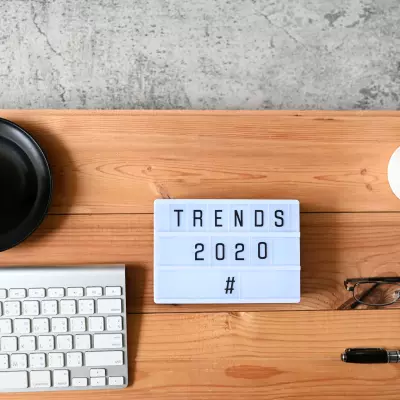Generations in the workplace
There are plenty of stereotypes and prejudices about different generations, but in reality, there are at least as many things in common for workers of different ages as differences.
Baby boomer, generations X, Y and Z - there are currently four generations in the labour market, which poses a myriad of challenges for both employees and HR people. If you listened to the news mostly on the radio and you clearly remember the day of President Kennedy died, you’re definitely a baby boomer. If you still remember the appearance of cable TV from your childhood or just your personal computer, you are one of the Xs. If you’ve been present in the years of Youtube’s birth and upswing, and your defining childhood moment is 9/11, you’re a member of the Ys, also known as the millennial generation. And if, since you know your mind, the internet, community media, and smartphones have been a part of your life, and you’ve just graduated or about to graduate from college, you’re Generation Z.
In fact, there is no consensus on what is considered a generation, and research contradicts or refutes whether there is a generational effect on work behaviour or employment. In addition, generational boundaries may vary from country to country: in Hungary, for example, births between 1980 and 1995 are usually labelled with the Millennial Label, while in the United States the same is true for those born between 1984 and 2001. Either way, it’s been more than 15 years: during that time, a regime change has taken place in Hungary, trends have been born and died, and a technological revolution has swept across the world.
Nowadays, it is even more difficult, because cycles are not measured in decades, but in months. Today, when the shelf life of a news item is less than a week and that of a meme is just a few months, there is simply no point in talking about generational characteristics. The first members of Generation Z, born around 1996, are certainly already working, while the latecomers born around 2010 tend to spend time on Tiktok, of which their first-generation counterparts may not have even heard of. There may not be such a difference between baby boomers or Xs, but we certainly need to be careful with generational approaches.
All of this, of course, does not deter professionals from coming up with different, well-sounding summaries of how different generations behave in the workplace. Here's a sound summary:
Baby boomers
- A stable job is important to them
- Strong commitment
- Not infrequently work alcoholics
- Great team players and good mentors
Generation X
- Have an excellent balance between their work and home tasks
- They are considered to be the best workforce
- Loyal but competitive
- Result-oriented
Generation Y
- continuous learning
- Performance orientation
- Freedom and flexibility are paramount for them
- Socially engaged
Generation Z
- Cynical and less loyal
- The most competent from a tech point of view
- Excellent multi-tasking
- Require regular feedback, value personal interactions
All of these are, of course, more stereotypes than rules engraved in stone - but there is undoubtedly truth in them. With Generations Y and Z, a new type of worker has entered the labour market, to which employers must adapt: typically graduates who speak several languages, and mobility is key to them: they are happy to move abroad even if they do not find a suitable opportunity in their home country. They don’t want to do the same job for many years, lifelong learning is part of their lives - and companies can benefit from that. In return, however, they expect the right compensation, and not just in terms of pay: they want constantly challenging tasks that they can do in their own way, flexibly, even from home. In addition to their own position, it is important to them what the company represents, what social roles they have, how green or environmentally friendly they are. Today, it is no longer enough to place selective waste bins in the kitchen - it is necessary to prove that the given company is committed to a sustainable environment, tries to restrain its ecological footprint, or even donates money for charity.
There are at least so many characteristics that do not separate but rather connect members of different generations: the importance of family, work-life balance, the desire for effective leadership, recognition, or even the desire to participate in decision-making. We all long for a job where they appreciate where it’s good to walk in (even if I don’t do it five days a week) where I feel like I’m doing something good with others or the world with my work. If we want to avoid intergenerational tensions in the workplace, let’s try to focus on these - a friendly, collaborative atmosphere not only makes employees ’lives easier but also contributes greatly to the company’s success.






